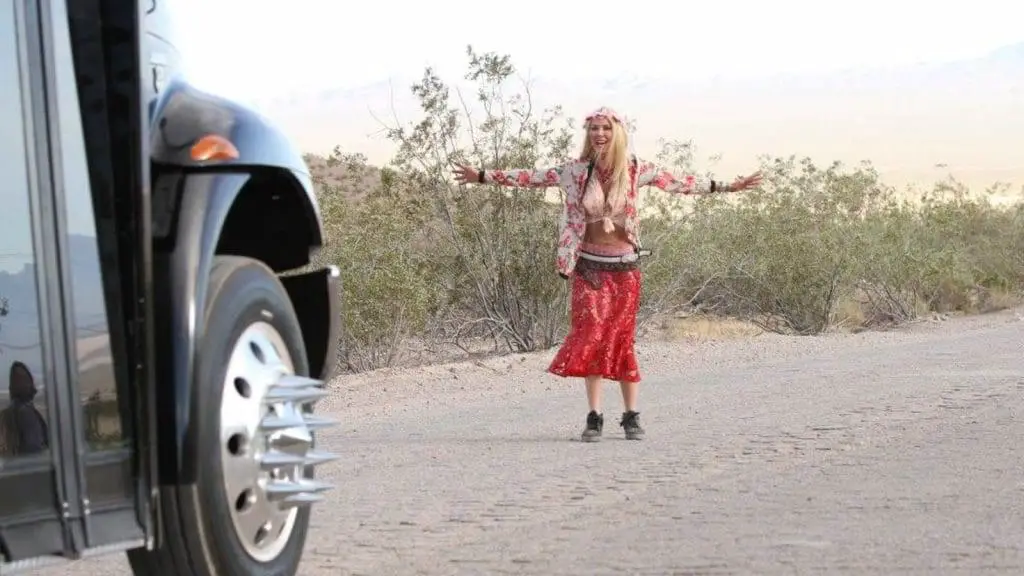
Victims of tragedy often hope for a way to help them forget the horrible things they’ve witnessed or experienced. Many may resort to abusing drugs and alcohol to dull their pain, but in the Korea of the future all one needs to do is track down a mythical virus which will erase their memories and, hopefully, grant them a fresh start.
“Nabi” (The Butterfly) presents us with an unnamed future city plagued with acid rain and the fabled “oblivion virus.” Anna Kim (Ho-Jung Kim), originally from the city, has returned to expunge the memory of her lost baby. To help her in her journey is Yuki (Hae-Jung Kang), a 17-year old guide for Butterfly Tours (the company that promotes vacations for those who really want to “get away from it all”). Yuki is also pregnant and suffering from lead poisoning, a disease that the future government treats with as much sympathy as present-day administrations do heroin addicts. Transporting the two of them is the cab driver known only as K (Hyun-Sung Jang), an orphan who knows neither his name nor his family.
Seekers of the virus brave the acid rain and follow swarms of butterflies, which are rumored to gather near outbreaks. Anna’s first attempt is thwarted when the rain weakens the supports of the construction site where the virus is rumored to be. She travels some with Yuki and K, discovering Yuki’s pregnancy and forming a tentative bond with the young girl in whom she sees something of herself.
Unfortunately, K has ratted Yuki out to the Authorities, and she is whisked away to quarantine, where it is said pregnant lead poisoning victims are forced into abortions. Anna is ready to leave altogether when she decides to use her remaining funds to get Yuki out of the hospital facility. Together, she and K attempt to help Yuki fulfill her last wish of giving birth to her child in the sea.
“Nabi” is filled with watery imagery that threatens to slow the film to a crawl in places: Anna has a flashback involving a swimming pool, while K’s taxi at one point plunges into a swollen river. The deadly rain is constant, forcing its victims to take lingering showers, and Yuki’s birth scene in the roaring surf – combined with the shaky digital video camera work – adds to the sensation of disconnectedness, depicting all the characters as somehow adrift. “Ocean birth,” at any rate, is a phenomenon I confess I’m unfamiliar with, and honestly it seemed a bit much.
Ho-Jung Kim is the unquestioned center of the film. She conveys her misery with such earnestness that her few moments of joy are something to behold. Hae-Jung Kang’s Yuki is a lone figure of optimism in a city where happiness is fleeting, at best. K, on the other hand (played by Hyun-Sun Jang), is a tough read. His habit of picking up extra fares in the hopes that someone will recognize the childhood photo of himself he keeps on his dash is pathetically touching, but he did fink on Yuki after all.
There’s a great deal of originality on display in “Nabi,” but the pervasive aquatic theme and the loose threads left at the end detract somewhat from its effectiveness. Still, the performances of Kim and Kang are superb, and Seung-Wook Moon’s weaving of Anna’s sense of loss with Yuki’s sense of life elevates “Nabi” over most art house fare.
